The dos and don’ts of backpacking: Are you planning on going backpacking soon? Whether you’re a seasoned traveler or a first-timer, it’s essential to know the dos and don’ts of backpacking to ensure a successful and enjoyable trip.
In this blog post, we’ll delve into the dos and don’ts of backpacking that every traveler should keep in mind.
First and foremost, let’s start with the dos. Do your research and plan ahead. This means researching your destination, knowing the local customs, and understanding the weather conditions.
It’s also essential to plan your itinerary and make reservations in advance, especially during peak travel seasons. Backpacking can be unpredictable, but with proper planning, you can minimize potential issues.
Next, pack smartly. Pack only the essentials, and consider the weight of your backpack. A heavy backpack can lead to fatigue and strain on your body.
Be sure to also pack lightweight clothing that is suitable for the climate you’ll be traveling in. Multi-functional items like a scarf or a sarong can also come in handy for various purposes.
Now, let’s talk about the don’ts. Don’t overdo it. Over-planning can be just as harmful as under-planning.
Allow for flexibility in your schedule and be open to changes. It’s essential to take breaks and rest when needed, so don’t feel like you have to see everything in one day.
Additionally, don’t forget about the environment. Backpacking involves exploring nature and the great outdoors, so it’s essential to minimize your impact on the environment. This means avoiding littering, respecting wildlife, and staying on designated trails.
The dos and don’ts of backpacking are all about preparation, packing smartly, being flexible, and respecting the environment.
By following these guidelines, you’ll be sure to have an unforgettable backpacking experience. So, grab your backpack, and get ready for an adventure of a lifetime!
Why backpacking is awesome
Backpacking is a unique way of traveling as it allows you to explore off the beaten path destinations, meet new people, and learn about different cultures.
It also gives you a sense of freedom and independence, as you get to choose your itinerary, travel pace, and route.
Moreover, backpacking is often more affordable than traditional travel options, which means you can travel for longer periods without breaking the bank.
Importance of being prepared
When it comes to backpacking, being prepared is crucial. From researching your destination to packing the right gear and clothing, proper planning can make your trip more enjoyable and stress-free.
Planning ahead also ensures that you have a better understanding of your destination, which can help you avoid common travel mistakes.
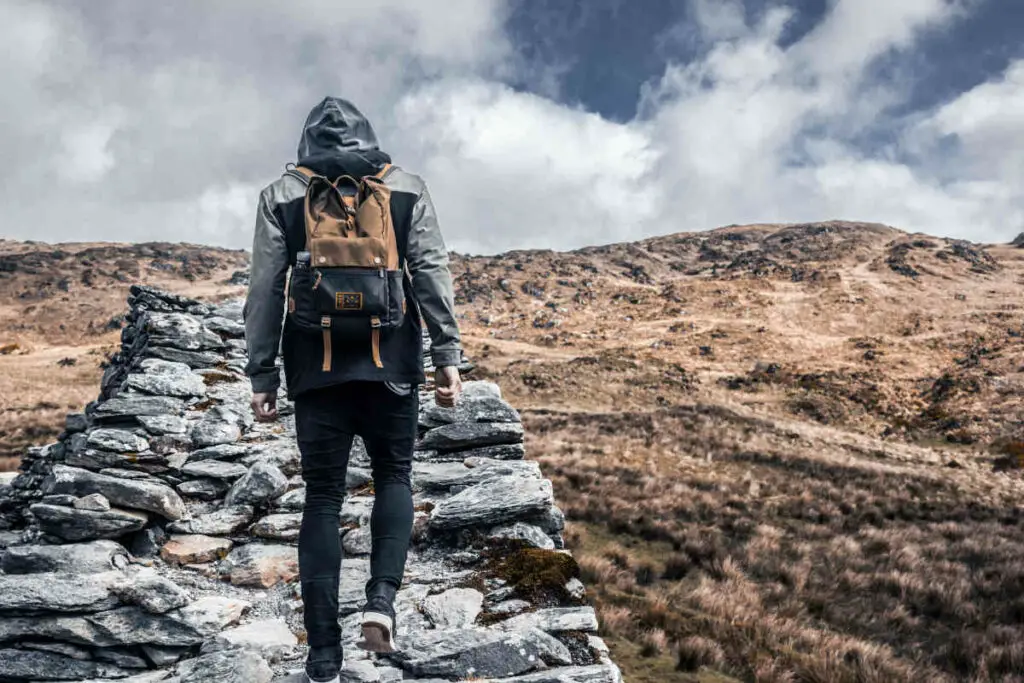
1. Do: Plan ahead
Research your destination
Before embarking on your backpacking journey, it’s essential to research your destination thoroughly. This includes learning about the local customs, laws, and culture, as well as finding out about the climate, geography, and activities available in the area.
Furthermore, it’s important to plan your route carefully, considering factors such as transportation options, accommodation availability, and safety concerns.
Make sure to pack appropriately for the climate and activities you’ll be doing, and consider bringing a first aid kit and other necessary gear.
Finally, don’t forget to inform someone of your itinerary and check in with them regularly while you’re on your trip. With proper preparation, your backpacking adventure is sure to be a success.
Create a packing list
Packing light is key when it comes to backpacking, but that doesn’t mean you should forget to bring essentials. To avoid overpacking, create a packing list before you start packing.
Be sure to include only the essentials, such as appropriate clothing, sturdy footwear, a first aid kit, and toiletries.
Additionally, consider the climate and activities you’ll be doing to ensure you bring the right gear. If you’re going to be camping, make sure to bring a tent, sleeping bag, and cooking supplies. If you plan on hiking, a map and compass are crucial.
Remember, the goal is to have everything you need without weighing yourself down, so think carefully about what you truly need and leave the rest at home.
Book accommodations in advance
Booking your accommodations in advance is an essential step to ensure you have a place to stay upon arrival. This also helps to avoid any last-minute stress and unexpected expenses.
Consider hostels or budget-friendly guesthouses, which are often affordable and provide the opportunity to meet other travelers.
Additionally, booking in advance can also give you the advantage of finding better deals and discounts. This way, you can save some money and use it to explore more activities and experiences during your trip.
However, make sure to read reviews and research the location of your accommodation beforehand to ensure a safe and comfortable stay.
By being proactive and taking the time to plan ahead, you can enjoy a stress-free and budget-friendly travel experience.
Also see: How to Backpack with Eggs?
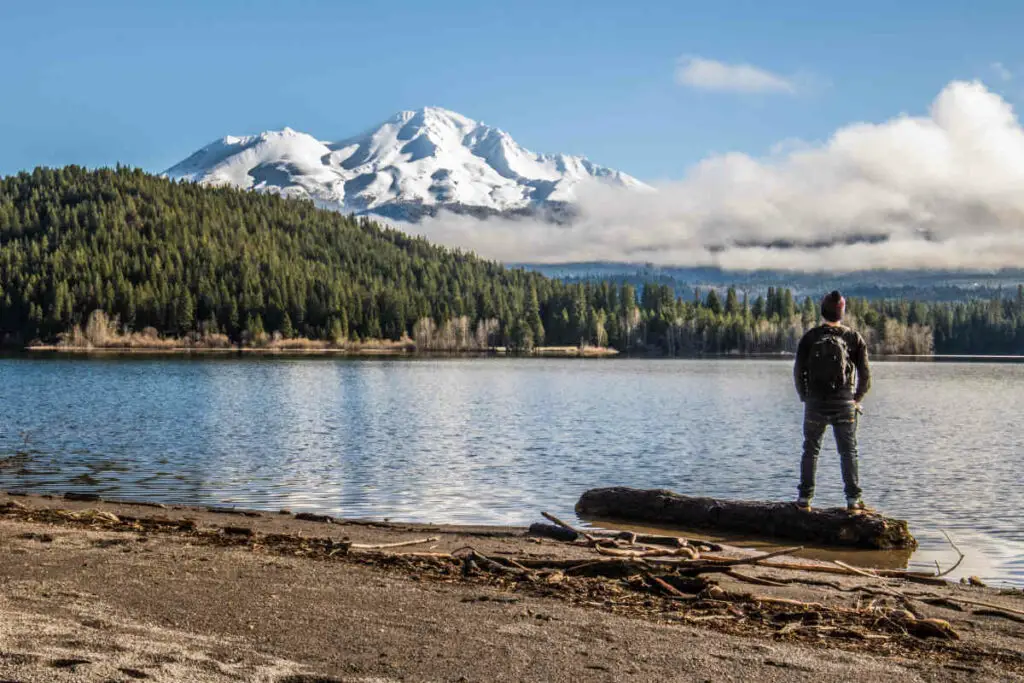
2. Don’t: Overpack
Tips for packing light
Packing light can be challenging, but it’s essential for backpacking trips. Consider versatile clothing items that can be worn multiple times, and pack only what is necessary for your trip.
Avoid packing too many gadgets or luxury items, as they can add unnecessary weight to your backpack.
Instead, opt for lightweight and functional gear that will serve multiple purposes. Think about what you will actually need on your trip, such as a reliable tent and sleeping bag, and leave behind anything that’s not essential.
Remember, the less you pack, the easier it will be to move around and enjoy your adventure without feeling weighed down by your backpack.
Clothing essentials for backpacking
The type of clothing you pack for your backpacking trip depends on the climate and activities you plan to do.
However, some essential clothing items to pack include comfortable hiking shoes, quick-drying clothing, a waterproof jacket, and warm layers for colder temperatures.
Other important items to consider when packing for a backpacking trip include a hat for sun protection, a lightweight and breathable shirt, pants that can convert into shorts, and high-quality socks to prevent blisters.
Additionally, it’s important to pack enough clothing for the duration of your trip while also considering the weight and space limitations of your backpack.
It’s always a good idea to research the climate and terrain of your destination to ensure you’re prepared for any conditions you may encounter.
What to leave behind
When packing for your backpacking trip, it’s essential to consider what you can leave behind. Avoid packing unnecessary items, such as bulky electronics, multiple pairs of shoes, or heavy toiletries.
Instead, prioritize lightweight, versatile gear and clothing that can be used in a variety of situations. Opt for quick-dry materials, and bring only the essentials when it comes to toiletries.
Remember that the less you pack, the easier it will be to carry your backpack, and the more freedom you’ll have to explore your destination.
Consider also investing in a good quality backpack that distributes weight evenly across your back and shoulders.
Top pick
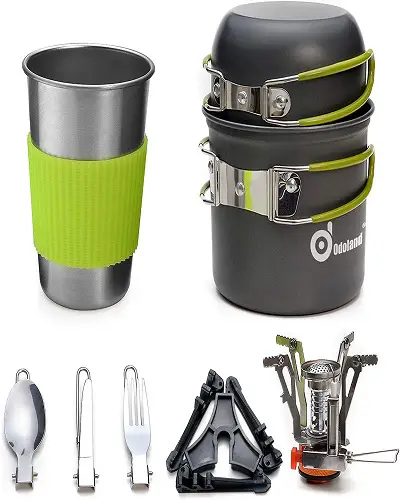
Editor’s choice

Best value

3. Do: Stay safe
Tips for staying safe while backpacking
Staying safe while backpacking should be a top priority. Be aware of your surroundings, avoid dangerous areas, and always trust your instincts. It’s also essential to keep your valuables close and avoid carrying large amounts of cash.
It’s important to properly prepare for the trip. This includes researching the destination, packing appropriate gear and clothing, and informing someone of your itinerary.
It’s also wise to have a first-aid kit on hand and to stay hydrated while on the trail.
Remember to always practice Leave No Trace principles and respect the environment and wildlife. By taking these precautions, you can ensure a safe and enjoyable backpacking experience.
Importance of travel insurance
Travel insurance is a crucial investment when backpacking. It can provide coverage for unexpected medical expenses, trip cancellations, and lost or stolen belongings.
Make sure to research and purchase a comprehensive travel insurance policy before your trip.
Without travel insurance, an unexpected illness or injury could quickly drain your savings or even bankrupt you.
Additionally, if you’re forced to cancel your trip for a covered reason such as a family emergency or natural disaster, travel insurance can reimburse you for your non-refundable expenses.
Don’t take the risk of traveling without insurance; it’s a small investment that can save you a lot of money and stress in the long run.
How to handle emergency situations
Despite taking precautions, emergencies can happen while backpacking. It’s essential to know how to handle them in advance.
Research the emergency services available in your destination, and always carry important documents, such as your passport and travel insurance information, in case of an emergency.
It’s also a good idea to pack a basic first-aid kit with essentials like bandages, antiseptic, and painkillers. Before heading out, make sure to inform someone of your itinerary and expected return time.
If you do find yourself in an emergency situation, try to stay calm and assess the situation before taking action. Remember, preparation is key, so always be ready for the unexpected when backpacking.
Also see: How to Pack Eggs for Backpacking?
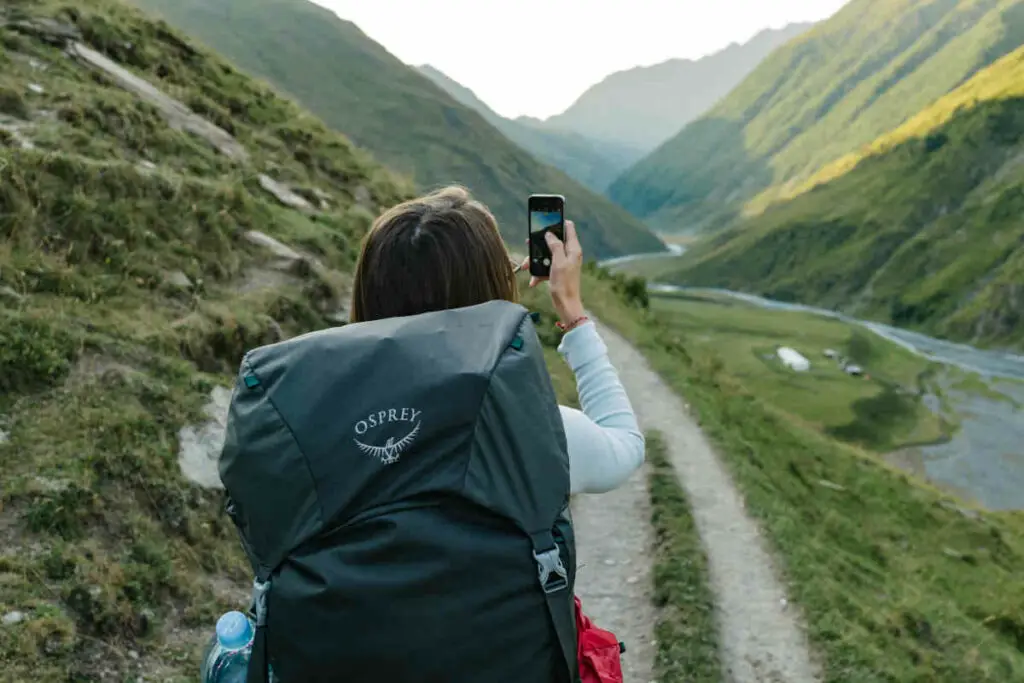
4. Don’t: Be unprepared
Common mistakes to avoid
Backpacking can be unpredictable, but you can avoid common mistakes by doing your research and planning ahead. This includes understanding the local laws and customs, having backup travel plans, and avoiding overly touristy areas.
Additionally, it’s important to pack appropriately for the climate and terrain, and to carry essential items such as a first aid kit, water purification tablets, and a map or GPS device.
It’s also a good idea to inform someone of your itinerary and check in with them regularly, especially if you’re traveling alone. With proper preparation and caution, backpacking can be a safe and rewarding adventure.
Essential items to bring on a backpacking trip
Aside from packing essentials like clothing and toiletries, there are several important items you should bring on your backpacking trip. These include a map, a reliable water filter, a multi-purpose knife or tool, and a portable charger for your devices.
Additionally, it’s essential to carry a first aid kit that includes bandages, antiseptic ointment, and pain relievers. A lightweight and durable tent, sleeping bag, and cooking gear are also crucial for a comfortable backpacking experience.
Don’t forget to pack enough food and water for the duration of your trip and always leave no trace of your presence in the wilderness. Happy backpacking!
How to plan for unforeseen circumstances
Unforeseen circumstances can occur at any time, so it’s essential to have a plan in place. This includes having a backup mode of transportation, extra cash or credit cards, and a communication plan with loved ones back home.
In addition, it’s also crucial to have emergency supplies on hand, such as a first aid kit, non-perishable food, and water. Having important documents and medication easily accessible is also important.
It’s better to be prepared for unexpected situations, whether it’s a natural disaster or a personal emergency, to ensure the safety and well-being of yourself and those around you. Remember, being proactive is always better than being reactive.
Top pick

Editor’s choice
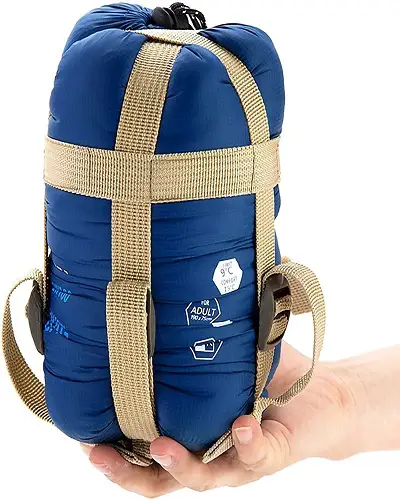
.
Best value

5. Do: Be respectful
Importance of respecting local cultures
One of the most significant benefits of backpacking is the opportunity to learn about different cultures. However, it’s important to be respectful of the local customs and traditions.
This includes dressing appropriately, learning basic phrases in the local language, and respecting religious sites and practices.
Being mindful of local customs can also lead to more meaningful interactions with locals and a deeper understanding of their way of life. It can also help prevent cultural misunderstandings and avoid inadvertently causing offense.
Additionally, respecting the environment and local wildlife is equally important, as backpackers often visit natural areas that are home to sensitive ecosystems and endangered species.
By being responsible and respectful travelers, backpackers can have a positive impact on the places they visit and leave a lasting impression.
Tips for being a responsible traveler
Being a responsible traveler means being mindful of your impact on the environment and the local community. This includes using eco-friendly products, supporting local businesses, and minimizing waste.
It also means being respectful of local customs and cultures, and avoiding activities that harm wildlife or damage natural habitats.
Responsible travelers should strive to leave a positive impact on the places they visit and to educate themselves and others about sustainable tourism practices.
By making small but conscious choices, we can all contribute to a more sustainable and responsible tourism industry.
How to reduce your environmental impact
Backpacking can have a significant impact on the environment, so it’s essential to minimize your footprint. This includes packing reusable containers.
Avoiding single-use plastics, and choosing eco-friendly transportation options like walking, cycling, or public transit. Additionally, it’s important to stay on designated trails to prevent soil erosion and damage to fragile ecosystems.
Leave no trace by properly disposing of waste and packing out all trash. Consider using biodegradable or natural toiletries and cleaning products to reduce chemical pollution.
By taking these steps, backpackers can help preserve the natural beauty of the wilderness for future generations to enjoy.
Also see: Can You Take Eggs Backpacking?
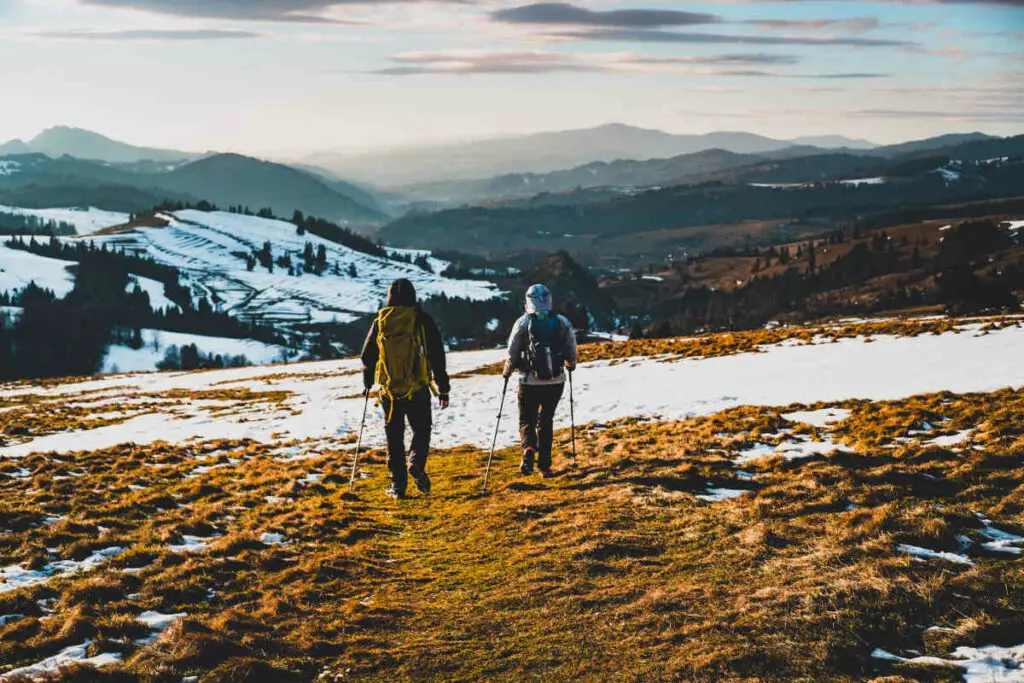
6. Don’t: Ignore your health
Staying healthy while backpacking
Staying healthy while backpacking is crucial to having a successful trip. This includes getting adequate sleep, staying hydrated, and practicing proper hygiene.
Be sure to research any necessary vaccinations or medications for your destination. Additionally, it is important to pack nutritious snacks and meals to sustain your energy levels on long hikes.
Wearing appropriate clothing and gear, such as sturdy shoes and sun protection, can also prevent injuries and discomfort.
Being aware of your surroundings and taking necessary precautions, such as using bug repellent, can further ensure a safe and enjoyable backpacking experience.
How to prevent common travel illnesses
Travel illnesses can be a major setback on a backpacking trip. Prevent them by washing your hands regularly, avoiding uncooked or undercooked foods, and drinking clean water.
Consider carrying a small first aid kit with essentials like band-aids, pain relievers, and antiseptic. It’s also important to pack any necessary prescription medication and to research the potential health risks of your destination beforehand.
In some cases, vaccinations may be required or recommended. Additionally, be sure to get enough rest and stay hydrated during your travels.
By taking these precautions, you can minimize the risk of getting sick and focus on enjoying your backpacking adventure to the fullest.
Importance of staying hydrated
Staying hydrated is crucial when backpacking, especially in warmer climates or at high altitudes. Bring a refillable water bottle and drink plenty of fluids to avoid dehydration.
In addition to bringing a refillable water bottle, it’s also a good idea to pack water purification tablets or a water filter in case you run out of clean drinking water. It’s important to plan ahead and map out water sources along your route.
Keep in mind that water sources may be scarce in some areas, so it’s important to conserve water whenever possible. Remember to drink regularly, even if you don’t feel thirsty, to prevent dehydration.
Top pick
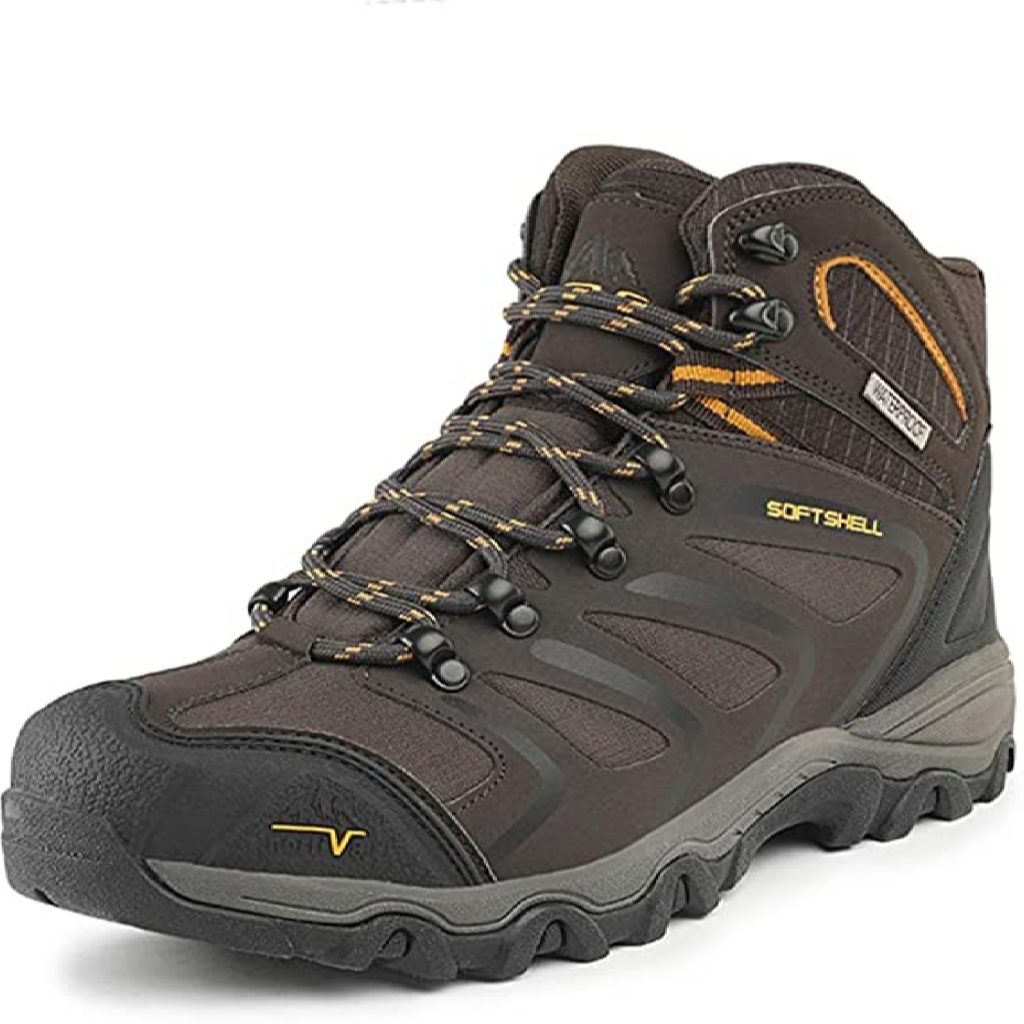
Editor’s choice
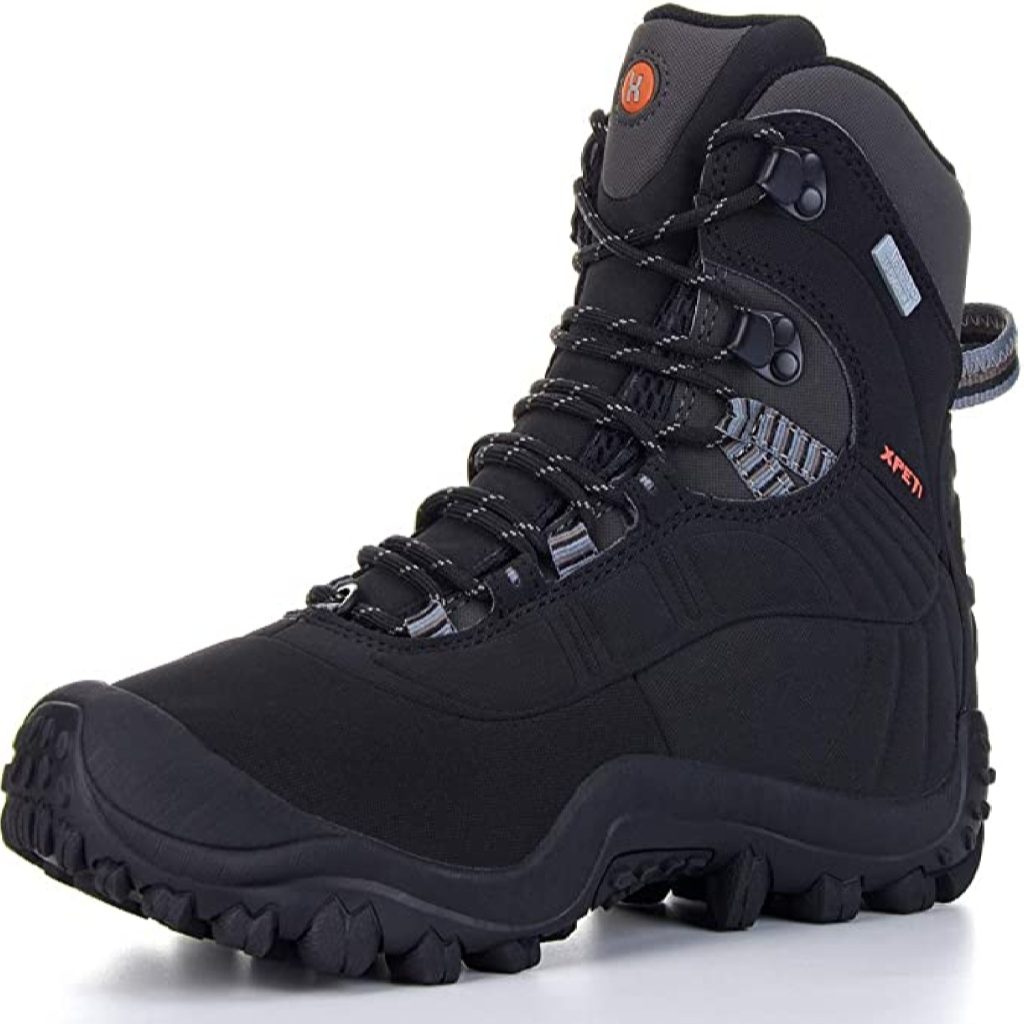
Best value
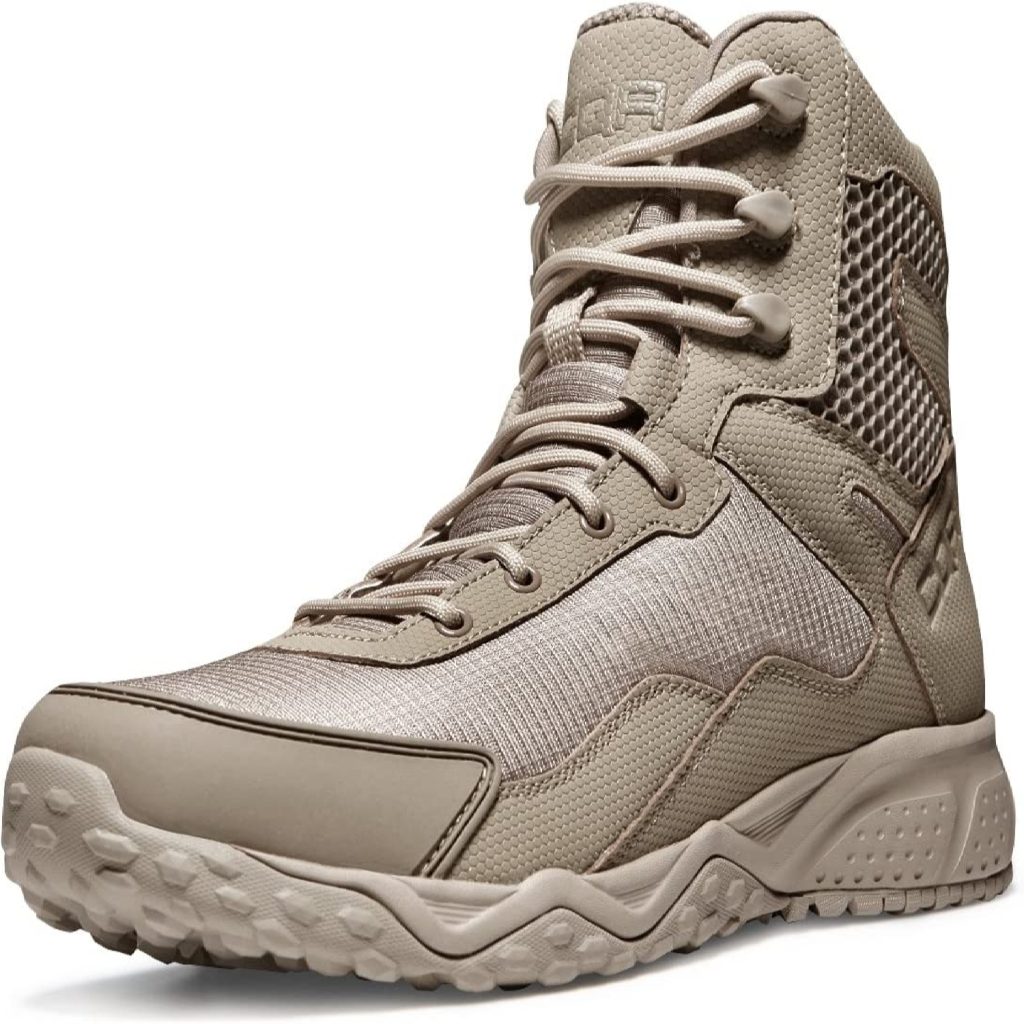
7. Do: Connect with locals
Benefits of meeting locals while backpacking
Meeting locals while backpacking can be a rewarding experience. It provides the opportunity to learn about the local culture and gain insider knowledge about the best places to eat, drink, and explore.
Additionally, meeting locals can also lead to meaningful connections and friendships. By interacting with people who live in the area, backpackers can gain a deeper understanding and appreciation for the community they are visiting.
These personal connections can make the travel experience more memorable and impactful, creating a sense of belonging in a foreign place.
How to make connections with locals
Making connections with locals can be as simple as striking up a conversation at a café or market. Consider taking part in a local tour or activity, volunteering, or attending cultural events to meet new people.
You could also join social groups or clubs that align with your interests, such as hiking or book clubs. Another way to connect with locals is by using online platforms like Meetup or Couchsurfing, which offer various events and opportunities to meet new people.
Building connections with locals can not only enhance your travel experience but also provide valuable insights into the local culture and way of life.
Tips for immersing yourself in the local culture
To truly immerse yourself in the local culture, consider learning a few phrases in the local language, trying the local cuisine, and participating in local customs and traditions.
By taking the time to learn some of the language and customs, you can gain a deeper appreciation for the local culture and create more meaningful connections with the people you encounter.
Trying the local cuisine can also be a great way to experience new flavors and ingredients that you may not have encountered before.
Additionally, participating in local customs and traditions, such as festivals or religious ceremonies, can provide unique insights into the community’s values and beliefs.
Overall, immersing yourself in the local culture can make your travels more enriching and memorable, and help you to gain a greater understanding and appreciation of the world around you.
Also see: Taking Fresh Eggs Backpacking
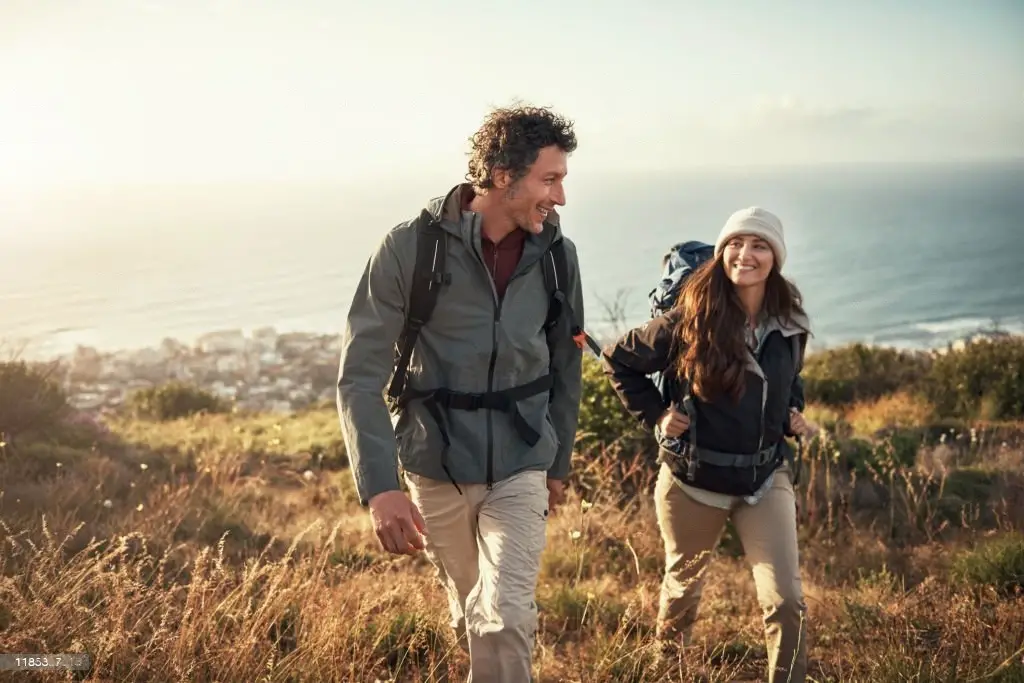
FAQ
1. What are the essential items that I should pack for a backpacking trip?
Water, food, shelter, appropriate clothing, navigation tools, first aid kit, and personal hygiene items.
2. What are some safety tips that I should keep in mind while backpacking?
Stay hydrated, pack essentials, research the area, tell someone your plans, be aware of wildlife.
3. What are some common mistakes that I should avoid while backpacking?
Overpacking, not planning ahead, not budgeting, not checking weather, and not knowing local customs.
4. How can I stay comfortable while backpacking for an extended period of time?
Choose lightweight and breathable clothing, pack a comfortable sleeping system, and take breaks when needed.
5. What are some ethical considerations that I should be aware of when backpacking in natural areas?
Minimize impact, respect wildlife, follow regulations, and leave no trace.
Conclusion
Backpacking is an incredible way to explore the world and experience new cultures. By following these dos and don’ts, you can ensure a successful and enjoyable trip.
Remember to plan ahead, stay safe, be respectful, and make the most of your backpacking adventure. So, pack your bags, and start exploring the world!
Backpacking offers a unique opportunity to travel on a budget and immerse yourself in the local culture. To make the most out of your trip, research your destination thoroughly and pack accordingly.
Don’t overpack, but make sure to bring essential items like a sturdy backpack, comfortable shoes, and a reliable map. While on the road, always stay aware of your surroundings, and take precautions to ensure your safety.
Be respectful of the local customs and traditions, and try to learn some basic phrases in the local language.
Remember that the journey is just as important as the destination, so embrace the unexpected and enjoy the adventure. Happy travels!
Also see: Beaches with the Clearest Water

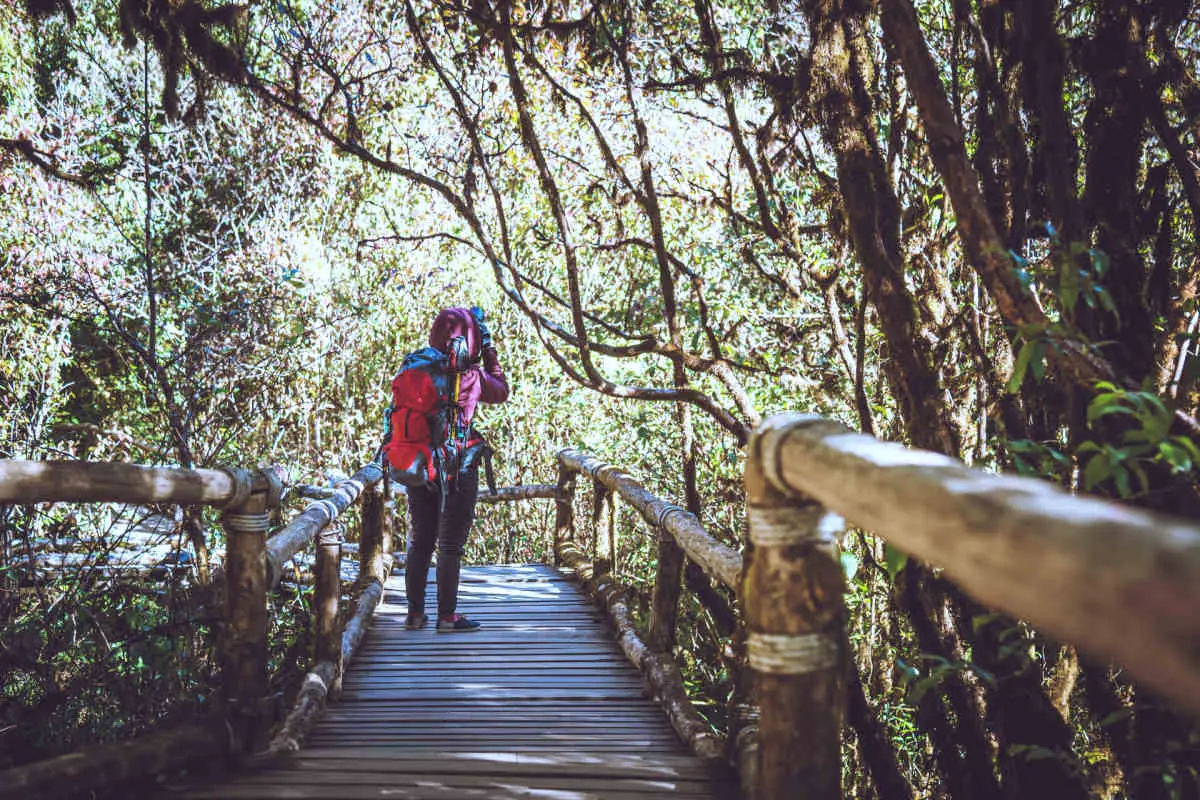







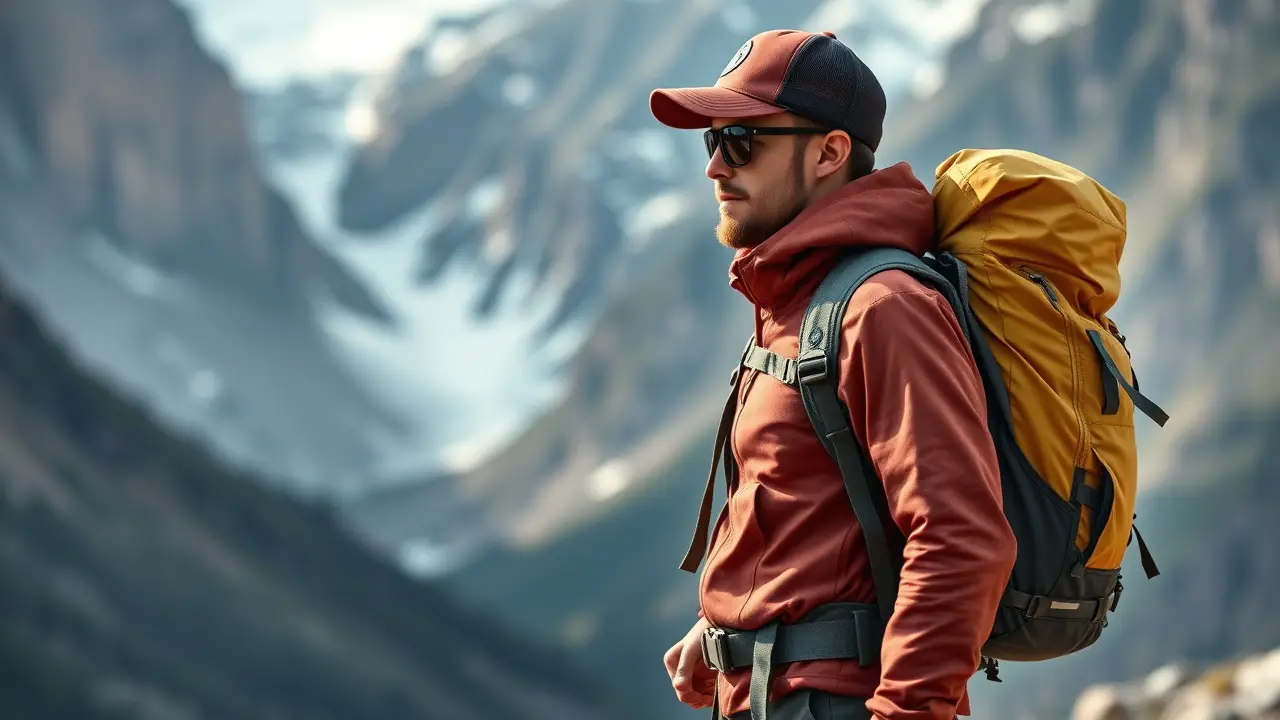
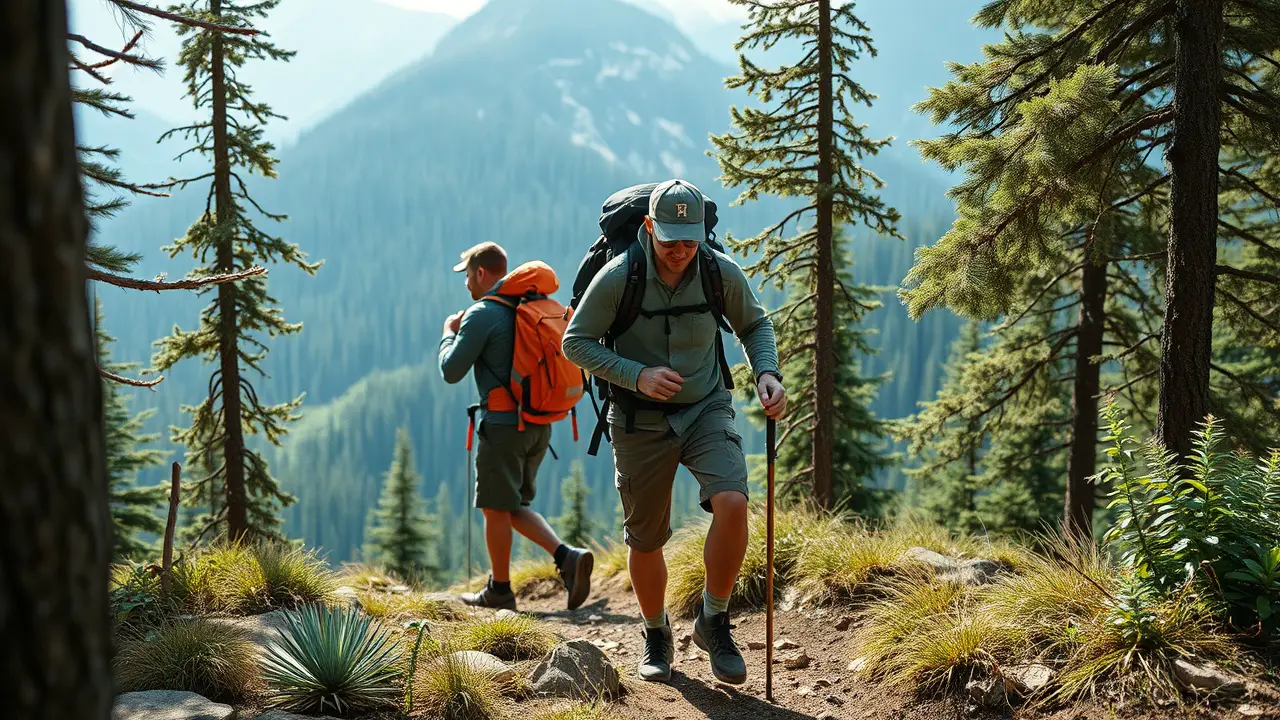
Leave a Reply